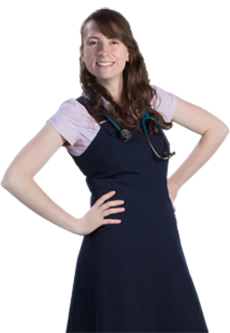So, final year, what even is that? And how did I get there?
At Imperial Medicine (MBBS/BSc) is a 6 year course:
Years 1&2 are pre-clinical years, learning how the body works and all the science behind diseases. Lectures run 9-5pm pretty much every day, with practicals, PBL, Communication sessions and anatomy mixed in. Practicals varied from looking down a microscope at your own blood, to drinking 2 cans of energy drink and measuring your observations whilst doing 10 minutes on an exercise bike! PBL (problem based learning) sessions were group sessions tackling clinical presentations (e.g. a man with shortness of breath just returned from LA on a long-haul flight) and teaching each other relevant information. Communication sessions involved visiting a patient with a chronic medical condition at home (for me out past Heathrow!) and discussing the impact of disease, as well as role-playing consultations with colleagues and medical actors! Anatomy sessions were the most interesting, dissecting cadavers in small groups (the sound of ribs cracking still goes through me!) to learn how the body fits together, and examining and drawing (in face-paint) the anatomical landmarks on each other and skeletons in living anatomy.

Pre-clinical is often seen as an ‘easy-ride’ for medics, as there are few bits of coursework to hand in compared to other subjects, however when you hit study leave you start to realise that is not the case!
Year 3 is the first clinical year and involves a variety of placements and some lectures on a range of medical presentations and conditions, as well as ethics and law.
Finally know something useful in medicine… until my Dad asks me to look at his dodgy knee, and I have to explain that I haven’t learnt about knees yet…
Year 4 is the intercalated degree year; each student picks a subject to study for a year (I picked Global Health, others include things like Endocrinology, Cardiology, Surgery, Respiratory, Pharmacology and Haematology) in more detail and has the opportunity to undertake a research project in that area (keeping some cells alive, analysing lots of numbers or interviewing patients), or a short-course module in medical ethics and law, medical humanities or the history of medicine. A great year to be back in lectures, be more involved in clubs and societies and to have a minimal commute!
Looking after cells can be hard work- they are difficult pets- needing watering, feeding, love and cuddles- no holidays for those on lab projects
Year 5 and 6 are both clinical and involve a wider variety of placements in a range of different areas of medicine (or specialities). The further through the years of placement you move the more responsibility and interaction you have.
The slow evolution into a doctor continues!




